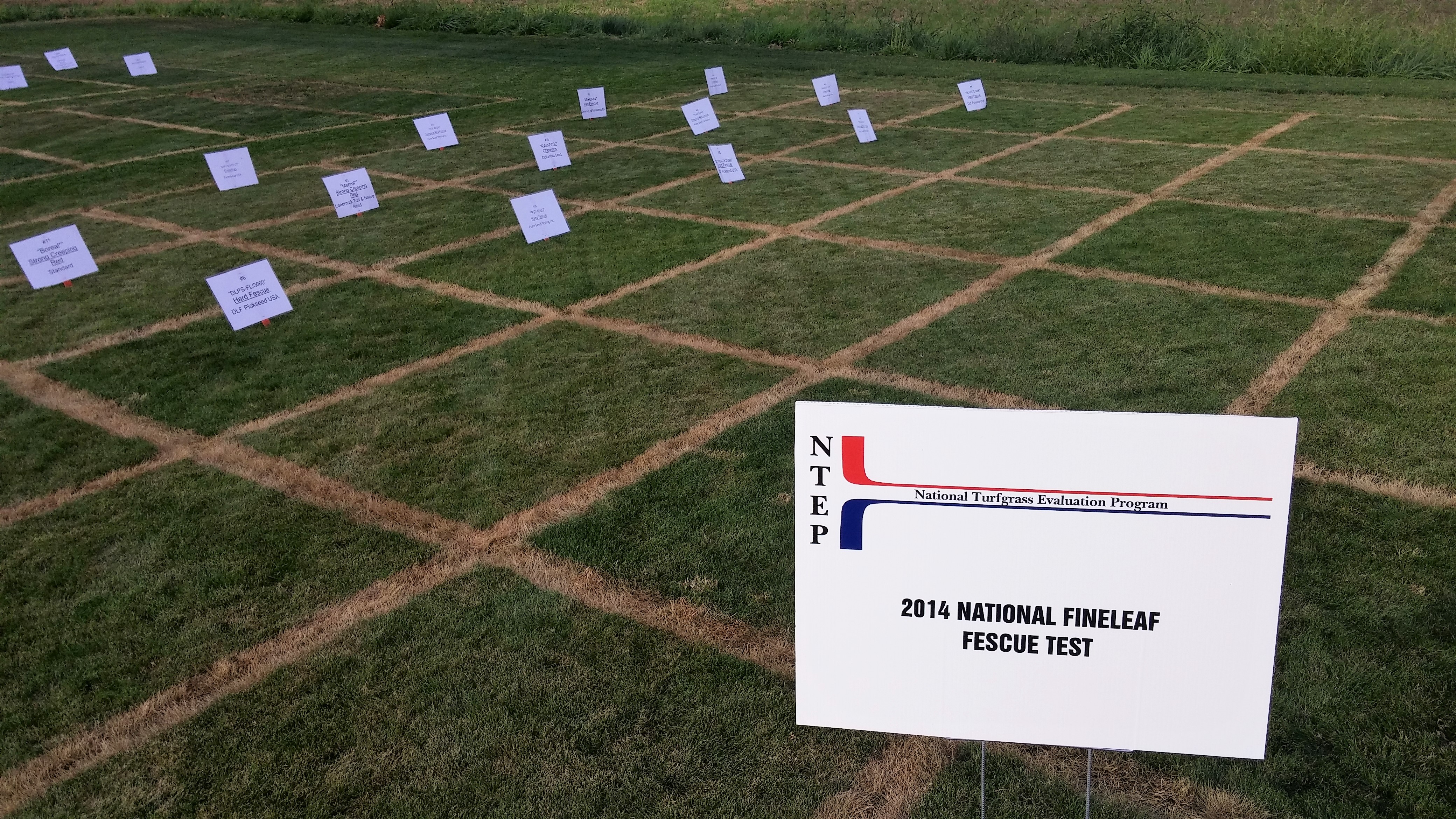
By Alec Kowalewski and Emily Braithwaite, Oregon State University
The National Turfgrass Evaluation Program (NTEP) is a collaborative effort between turfgrass seed breeders and North American universities. Under the direction of Kevin Morris, NTEP uses the following steps when developing and maintaining trials.
Development and Maintenance Process for an NTEP Trial
- NTEP releases a call to turfgrass breeders and seed companies for commercially available cultivars and promising experimental variety entries. NTEP charges a fee for each entry.
- NTEP releases a call to universities interested in hosting the NTEP trial. The entry fees collected by NTEP are given to the participating universities to cover plot maintenance costs.
- NTEP receives seed from the respective breeders and redistributes it to the participating universities.
- The participating universities establish the replicated cultivar and experimental variety research plots and collected a variety of data for the next five years.
- The data is made publicly available annually, and a summary report is also produced after the conclusion of the five-year period. These reports are available at the NTEP website.
NTEP Fineleaf Fescue Trials
While the NTEP has been conducting fine fescue trials since 1983, the popularity of fine fescues did not blossom until the late 2000s, when turfgrass breeding efforts shifted toward more sustainable turfgrass species and cultivars in response to industry demands. Considering this, fine fescues are well known for excellent tolerance to cold environmental conditions and low soil fertility levels, as well as persistence with minimal irrigation. With the relatively short duration of intense breeding for fine fescues, in comparison to species like perennial ryegrass and Kentucky bluegrass, disease tolerance has been a concern.
From 2014 to 2019, the “2014 National Fineleaf Fescue Test” was conducted in 14 states in the USA (California, Connecticut, Illinois, Indiana, Maryland, Massachusetts, Michigan, Minnesota, Missouri, New Jersey, North Carolina, North Dakota, Oregon, and Washington) and Quebec Canada. For this trial, data were collected from 42 commercially available cultivars or promising experimental varieties of the five fine fescues (strong creeping red, slender creeping red, Chewings, hard, and sheep fescue). Data included, but was not limited to, seedling vigor, spring green up, monthly turfgrass quality and genetic color, weed encroachment, as well as drought, traffic, insect and disease tolerance. Disease tolerance work in this project included evaluating resistance to Microdochium patch, leaf spot, dollar spot, red thread, brown patch, and summer patch. Findings from this project can be found at the NTEP website.
2020 NTEP Fineleaf Fescue Trial
In 2020 a new Fineleaf Fescue NTEP trial was initiated. The number of locations for this project was increased to 19 states (Colorado, Connecticut, Delaware, Indiana, Iowa, Kansas, Kentucky, Maryland, Massachusetts, Michigan, Minnesota, New Jersey, North Carolina, Oregon, Pennsylvania, Utah, Virginia, Washington, and Wisconsin) and Quebec Canada. The number of fine fescue entries in this trial was increased to 43, 12 of which became commercially available in 2020. Response variables in this new study will include the standard data (vigor and spring green-up, leaf texture, turfgrass quality, and generic color), as well as shade, salinity and traffic tolerance. Genetic disease tolerance will also be a major component to this multi-state project.
NTEP-DB 1.0
While the NTEP is one of the most widely known turfgrass research programs in the world, its data has historically been stored in large sets of text files and spreadsheets, and presented as summary reports. These methods of delivery are cumbersome and tedious to navigate limiting the use of NTEP data. To address these deficiencies researchers have recently developed a new NTEP database – NTEP-DB 1.0. This new database was designed to reduce the manual efforts and expert knowledge currently required to extract meaningful information from the available NTEP system. More information on NTEP-DB 1.0 check out the following publication: NTEP-DB 1.0: A relational database for the national turfgrass evaluation program [Open Access].